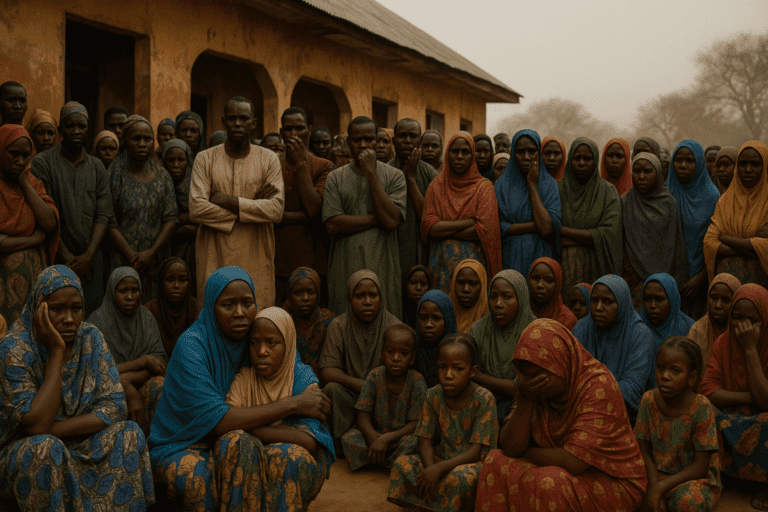In a deeply troubling event on March 7, 2024, more than 300 children were abducted from a school in Kuriga town, located in Nigeria’s northwest region. The attack, attributed to armed criminal groups known locally as bandits, has sparked widespread outrage and concern about the escalating violence and insecurity in the country.
The Abduction Incident
In the early morning hours, gunmen stormed the school, overpowering security forces and forcibly taking the children from their classrooms. While the exact number remains unclear, estimates place the number of abducted children between 300 and 400. Following the attack, the kidnappers retreated into the dense forests surrounding the area, complicating immediate rescue operations.
In response, Nigerian military and police forces have launched a large-scale operation to locate and rescue the hostages. Authorities are also engaging local community leaders in negotiations to facilitate the safe release of the children.
National and International Outcry
The abduction has provoked shock and condemnation throughout Nigeria and internationally. President Muhammadu Buhari publicly expressed horror over the incident, pledging to bring the perpetrators to justice and intensify efforts against the armed groups terrorizing the region.
International organizations, including the United Nations and Human Rights Watch, have denounced the attack and urged swift government action to ensure the children’s safe return. The tragedy has further spotlighted the growing vulnerability of schools and children in conflict-affected areas.
A Region Struggling with Insecurity
Northwestern Nigeria has long been plagued by insecurity due to the activities of armed bandit groups engaged in kidnapping, armed robbery, and violent crimes. These groups exploit the region’s vast and challenging terrain to evade capture, frequently targeting schools and communities. The Kuriga abduction is the latest in a string of such incidents, amplifying fears over the safety of educational institutions.
Despite ongoing military campaigns aimed at restoring security, the government faces criticism over logistical difficulties and the adaptive tactics of these militant groups. Underlying issues such as poverty, unemployment, and widespread availability of small arms continue to fuel the instability.
Community Support and Calls for Change
In the aftermath of the abduction, Nigerian communities have rallied to support affected families. Religious and civil society groups have organized prayers and mobilized resources to assist rescue efforts. Social media has amplified global awareness, with the hashtag #BringBackOurChildren trending worldwide.
This tragedy has reignited urgent discussions on comprehensive strategies needed to combat the insecurity crisis in Nigeria. Experts emphasize that beyond security operations, addressing socio-economic challenges, strengthening judicial systems, and enhancing community policing are vital for long-term peace and stability.
As rescue efforts continue, Nigeria remains united in hope for the safe return of the children and determined to confront the ongoing threat posed by armed groups in its northwest region.


